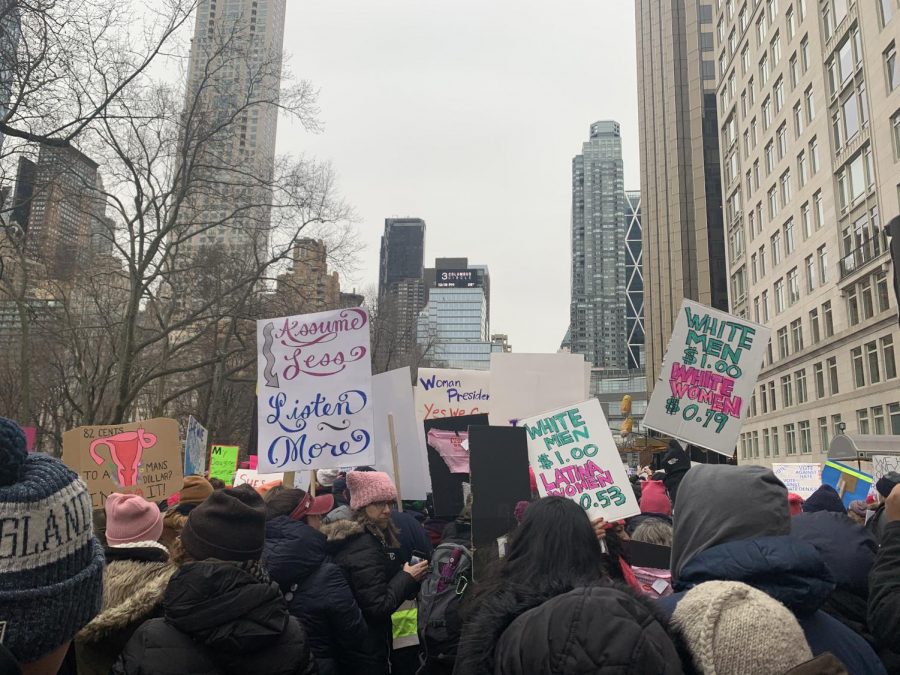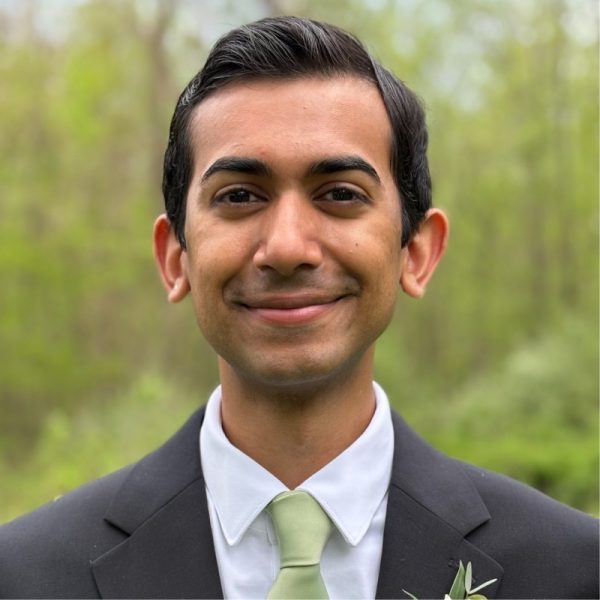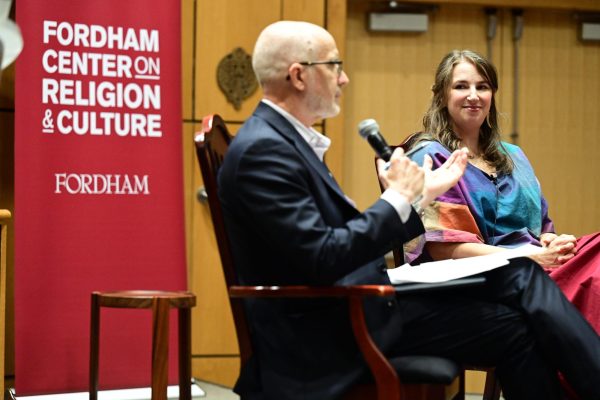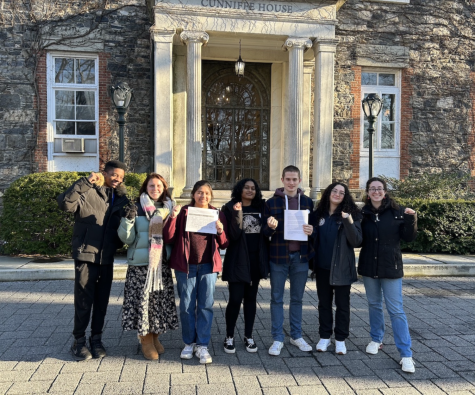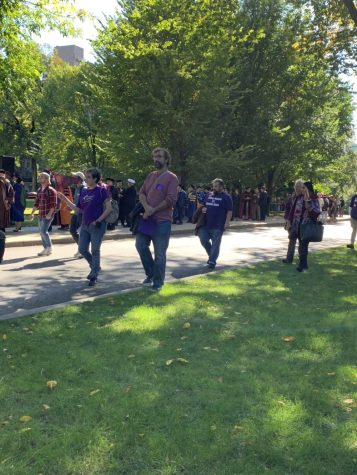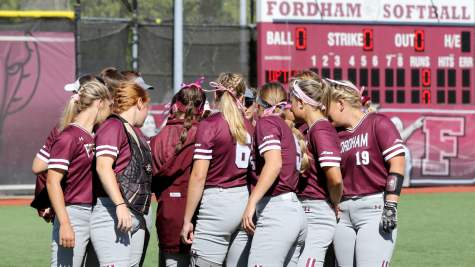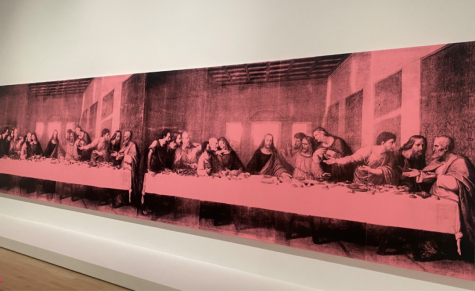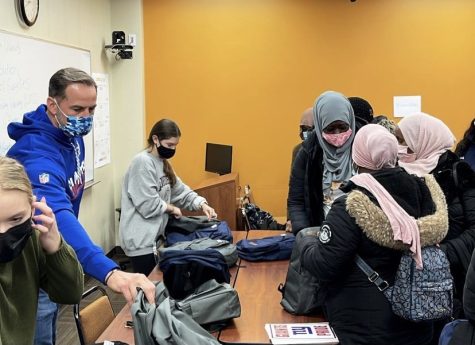Students March with Thousands for Gender Equality
Thousands of people gathered at Columbus Circle and Foley Square to participate in the fourth annual Women’s March on Saturday, Jan. 18. The Columbus Circle march was organized by the Women’s March Alliance, as it has been since the first annual march in 2017. The original Women’s March organization organized foley Square’s march.
Last year, controversy surrounded the Women’s March due to allegations that the group was anti-Semitic. Vanessa Wruble, former head of campaign operations for the 2017 Women’s March, broke off from the organization in 2018 to create March On, which hosted the 2018 Women’s March in Foley Square. This year, the Women’s March Alliance released a statement to repair the organization’s reputation and voice its priorities:
“New York City is noted as one of the most diverse cities in the world. At Columbus Circle, the Women’s March Alliance also supports the ROARS of the Women’s March NYC rally taking place at Foley Square. Discrimination, racism and the exclusion of any members of the NYC fabric because of race, gender, religion, sexual orientation, socio-economic status and hair will not be tolerated. It was a priority to bring the two marches together. Both leadership teams have been working seamlessly and cooperatively to ensure success and sisterhood going forward.”
The main priority of this year’s march was unity. The march in Foley Square was even referred to as the Women’s Unity March on several websites, including the Women’s March site. However, the three specific issues that organizers chose to focus on were climate change, reproductive rights and immigration.
Regardless, many of the signs and chants featured jabs toward Donald Trump. Many argue that Trump and his administration are not separate from the policies they are protesting.
New York Senator and Minority Leader Chuck Schumer, who made a surprise appearance at Columbus Circle, said, “We’re gonna vote him out,” while proudly hoisting up a Planned Parenthood sign which read, “Together We Fight for All.”
One participant, Marison, said she marched in support of Trump’s removal from the White House. “We think this country is run by a man who does not have our interests at heart,” she said. “He’s a liar, he’s a crook and he shouldn’t be in that position. And I don’t think he got there legally, either. That’s why we’re here.”
Other signs read “Trump Is Our National Crisis” and “Trump Is a Ra_ist.” Hundreds simply said “F— Trump,” and still more offered suggestions as to who should run for the presidency in 2020; women and “any functioning adult” were popular options. Several kiosks were selling anti-Trump merchandise, and as the crowds passed by the Trump Tower, they yelled, “Shame!” and held up middle fingers.
Although this year’s march drew a smaller crowd than in previous years, organizers and supporters of the march stressed that quality, not quantity, was their goal.
After last year’s allegations, the Women’s March Organization revamped its leadership, and the 2020 march’s purpose felt similar to the first march, held the day after Trump’s 2017 inauguration. Some chants were similar too — “Hey, hey, ho, ho, Donald Trump has got to go” was yelled throughout the entire march, just like it was at the very first march.
A mother and daughter, Emily and Sophie, said they marched for the generations of women to come.
“I’m marching because I have a niece now, and she’s almost two years old. I want her to be able to grow up in a place where she doesn’t have to do this,” Sophie said. “I want her to be able to know that she has rights as a woman and that she doesn’t have to be afraid to be a woman. I’m really doing a lot of this for her.”
Emily mirrored her words and said, “I’m marching so my daughter’s daughters don’t have to.”
Unity across not only different generations but different races, religions, sexual orientations and more were not only stressed by the organizers but demonstrated by the marchers themselves. Hundreds stopped on Central Park West while chanting, “Women united will never be divided,” and strangers became familiar.
Bahar Ghandehari, FCRH ’23, said she marches for women in Iran, who would be risking their lives to participate in something like the Women’s March.
“For me, the women’s march is about celebrating the female power and recognizing what we have achieved and what we need to fight for as a global community,” she said. “If Iranian women are willing to get arrested in this fight, then it is our responsibility to use the freedoms we’ve been given to ensure that their voices are heard too.”
Katie Schulte, FCRH ’22, said she has marched for the past three years and has had this same positive experience every time.
“This year, I felt the spirit was the same despite the weather,” Schulte said. “Though I did have to leave earlier because of the snow, I felt it was still important to show up because it sends a message; these voices fighting for equality cannot be silenced. It’s a reminder not just for those in power but for those at the march too, to speak up not just on days like this, but every day.”





































































































































































































